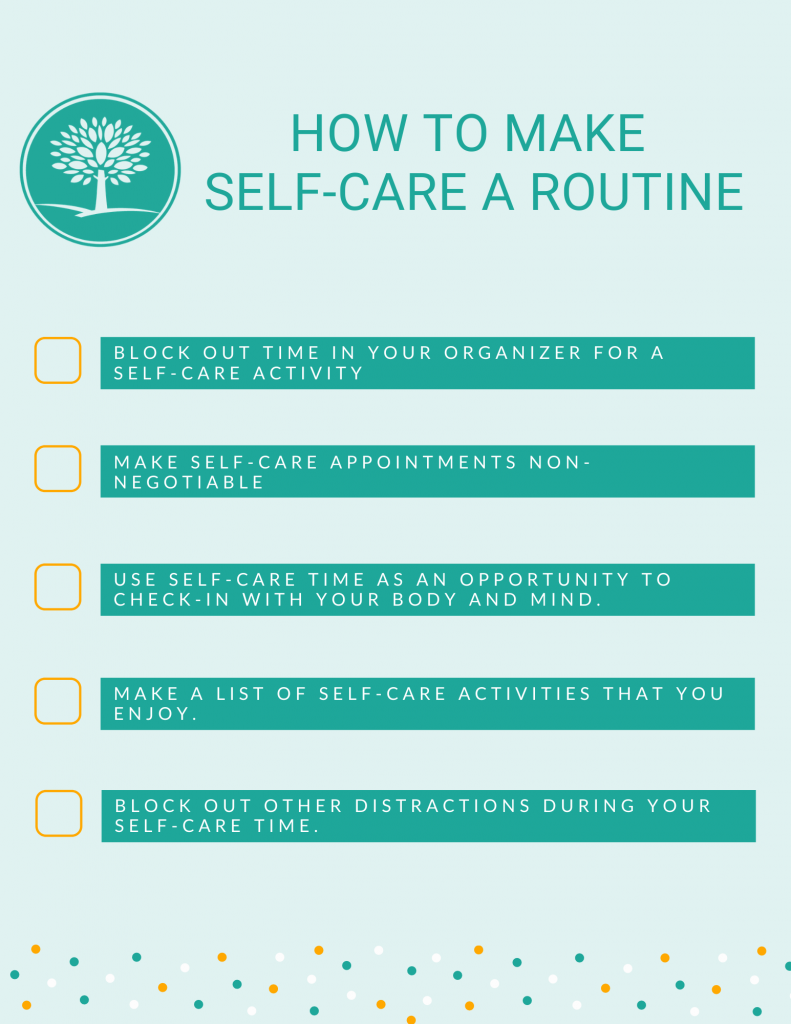Learning how to take care of yourself is an essential part of recovery. Practicing self-care during the holidays is one of the best ways to manage stress — which can build up and trigger a relapse.
Recently, I asked a friend how she was going to stay sane during the holidays. She thought I was joking. Unfortunately, her reaction wasn’t all that out of the ordinary. So many people resign themselves tothe idea that the holidays will always be stressful, chaotic and exhausting.
No matter how stressful a situation can be, it’s important to keepa handle on your stress levels— especially if you’re in recovery. Managing your stress is essential to make sure you have a hold on your sobriety. Take the time to care for yourself so you can enter the new year feeling refreshed instead of frazzled.
What Is Self-Care & Why Is It Important?
Self-care was an unfamiliar concept to me when I was in early recovery. I thought it might be related to showering regularly and brushing your teeth. The idea of setting aside time to look after yourself, rest and restore your energy levels was completely foreign to me.
Ultimately, self-care simply means taking time to look after your needs, be they mental, spiritual, emotional and physical.Self-careis a range of activities that improve your sense of well-being and can be a great way to manage any mental health conditions and maintain wellness in your recovery.
New Year, New Beginnings.
Whether you are struggling with addiction, mental health or both, our expert team is here to guide you every step of the way. Don’t wait— reach out today to take the first step toward taking control of your life.
What’s important is that these activities help you avoid extreme states of stress and burnout. They can also be used as part of a rescue plan if you do feel particularly exhausted or over-exerted.
Self-Care Strategies For the Holidays
I was amazed by all of the things I could do to relieve my stress instead of using drugs and alcohol. The key is getting curious and finding what works for you. Try new classes or activities. Pay attention to what you enjoy, and what provides stress relief for you. You might look into the following as a way to manage stress, take care of yourself and find joy in life.
stress relief for you. You might look into the following as a way to manage stress, take care of yourself and find joy in life.
Activities to Manage and Relieve Stress:
- Kundalini and Restorative yoga
- Meditation
- Retreats
- Massages
- Float tanks
- Talk therapy
- Swimming
- Walking outside or in nature
- Sharing circles
- Recovery meetings
- Book clubs and studies
- Workout classes
- Drawing or art workshops
- Singing or playing music
- Creative time
- Crafting
The list of activities you can do to focus on yourself, manage stress and have fun is endless.
How to Practice Making Self-Care a Daily Routine
Self-care can be practiced at any time, but it is most effective if you make it part of your normal, daily routine. Here are some useful ways to make these self-care activities part of your everyday life:

Making a Self Care Daily Routine
- Block out time in your organizer for a self-care activity.For example, I plan out an hour every morning to drink coffee, meditate and journal.
- Make self-care appointments non-negotiable.If someone wants to see you or you’re asked to do something during that time, try to say no and explain that you are busy. Remember, you are in no position to help others if you haven’t taken care of yourself.
- Use self-care time as an opportunity to check-in with your body and mind.Ask yourself how you feel, both mentally and physically. Writing it down can help you process thoughts, feelings, and emotions.
- Make a list of self-care activities that you enjoy.Narrow down your top three, and remember them during times when you need extra care the most.
- Block out other distractions during your self-care time.Try not to think about chores that need to be done or what you’re having for dinner. This time should be dedicated entirely to you for rest, relaxation and restoration.
By ensuring you look after yourself during the holidays, you can keep your stress levels manageable. That way, you can enter the new year feeling refreshed and ready for the new challenges that await you.
If you or a loved one live with addiction or are using drugs recreationally and want to stop, The Recovery Village® can help.Reach outto one of our representatives today to learn how you can start on your path to recovery.








